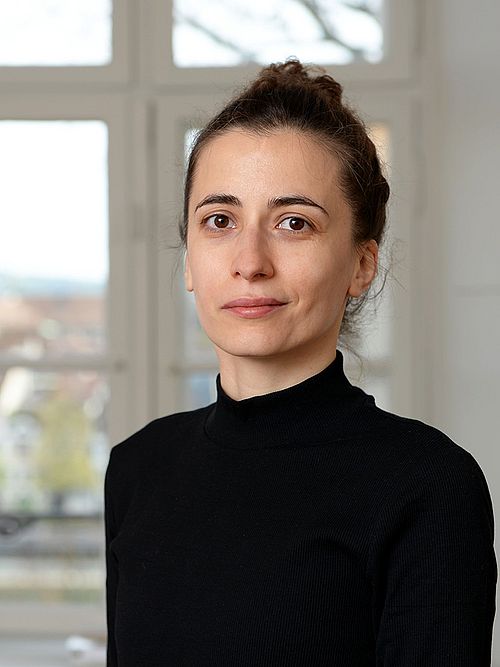REACTION in the Yarmouk refugee camp – a monograph of Palestinian resistance in absentia
Project Description
Founded in 1957 as an unofficial camp eight km south of Damascus, Yarmouk became the largest Palestinian refugee camp and was colloquially called ‘the capital of the Palestinian diaspora’. It was razed to the ground by the al-Assad regime during the siege by ISIS in 2015, and many of Yarmouk’s inhabitants now live in Sweden. In the context of the weaponization of urban planning on refugee camps’ territories, Yarmouk ‘acquired a visceral centrality precisely as a symbol of the ongoing Palestinian catastrophe’ (Fiddian-Qasmiyeh 2020, 298). This study explores the complex ways in which Yarmouk, despite its destruction, continues to exist in the Palestinian imaginary as a mobilized set of emotions and social practices. By focusing on the ‘Reaction’ cultural resistance group in investigating how artworks and memory practices contribute to a counter-archive challenging epistemicide on Palestine, this study builds on a growing scholarly and activist movement to recognize refugee camps as forms of heritage. Specifically relevant for this research is the concept of ‘spacio-cide’ coined by Sari Hanafi and marking the deliberate Israeli colonial logic of targeting Palestinian land and grassroots resistance (2012, 190). Using visual ethnography supported by prior archival research, I will conduct interviews within Palestinian diaspora communities in Sweden, including members of ‘Reaction’. My research will contribute to this recent trend in ethnic studies concerned with indigenous geographies of solidarity and decolonial practices of sociality continuing post-displacement, in the diaspora. More specifically, it will draw on Jasbir Puar’s concept of ‘spatial debilities’ (2021) exploring the ways in which Palestinian refugees from Yarmoukdisplaced multiple times by forms of racial capitalism and neoliberal forms of primitive accumulation continue to not only exist but also resist. The findings of this research will contribute to countering a humanitarian ‘semiotics of suffering’ by ‘making space to examine refugee imaginaries [...] as a transformatory aesthetic, or reworlding’ (Durrant, Ferrier, Stonebridge and Wooley 2020, 8).
Main Supervisor: Prof. Dr. Kenny Cupers
Co-Supervisor: Prof. Dr. Manuela Boatcă
External Supervisor: Prof. Dr. Sari Hanafi
Short Bio
Andreea Midvighi is a PhD candidate in Urban Studies at the University of Basel. In her research, she is looking at Yarmouk Refugee Camp in terms of camp-city relations and the ways in which the camp as a space of resistance continues to exist in the imaginary of the, now, Palestinian double-refugees from Yarmouk in Sweden, focusing on issues of power, space violence and everyday forms of resistance. Prior to starting her PhD, Andreea worked with Cultures of Resistance Films on documentaries including Wantoks: Dance of Resistance in Melanesia, From Trash to Treasure: Turning Negatives into Positives, and Stalking Chernobyl: Exploration After Apocalypse. Andreea holds a B.A. in Philology from the University of Transilvania, Brasov, an M.A. in Cultural and Critical Studies from the University of Westminster, London, and a joint M.A. in Global Studies from the Albert-Ludwigs-Universität Freiburg and FLACSO Buenos Aires. She has also been involved in various awareness-raising campaigns on Palestine and Western Sahara.
Midvighi, Andreea-Florentina. “Recovering Evidence of Existence through Collaborative Visual Ethnography.” In Nitin Bathla, ed., Researching Otherwise: Pluriversal Methodologies for Landscape and Urban Studies. Zurich: gta Verlag, 2024, 73–95. https://doi.org/10.54872/gta/4692-2.

Andreea Midvighi
PhD in Critical Urbanisms
University of Basel
Department of Social Sciences
Urban Studies
Spalenvorstadt 2
4051 Basel
andreea.midvighi@unibas.ch
Quick Links
Social Media
